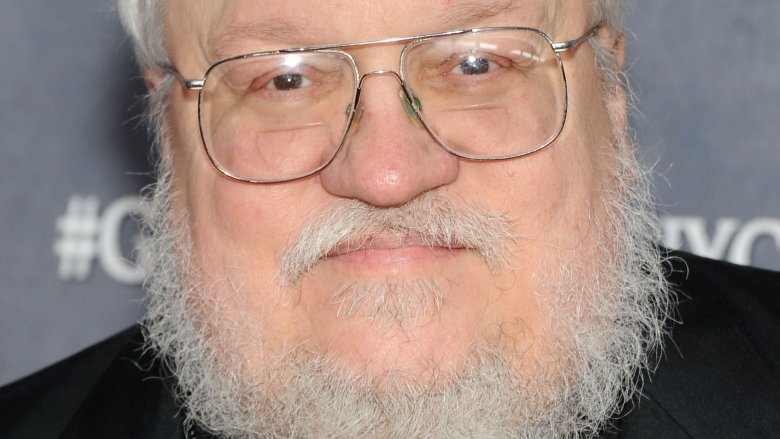George R.R. Martin Was Rejected From Star Trek: The Next Generation
Star Trek: The Next Generation could have been a much, much different series.
Before George R.R. Martin put pen to paper for A Game of Thrones, the first novel in the A Song of Ice and Fire novel series upon which the HBO fantasy series Game of Thrones is based, he was already a venerated sci-fi writer and was just around the corner from becoming the next big thing. But despite his reputation, multiple writing awards, and experience in writing for television, Martin failed to impress Paramount when he interviewed for a position on the Star Trek: The Next Generation writing staff.
Speaking at a workshop at University of California San Diego's Arthur C. Clarke Center for Human Imagination, the prolific author spoke about the long-standing stigmas against sci-fi, using his experience being rejected by Star Trek: The Next Generation to illustrate his points.
"I had an interview with Star Trek: The Next Generation for a possible job as a staff writer. I remember coming in to the office of this producer—who thankfully did not last long on the show, and you can see why when I tell the story," explained Martin. "He said, 'I don't know who you are, can you tell me your credentials.' And I said, 'I am just coming off Twilight Zone where I worked for a while, but before that I wrote novels and short stories. I am primarily a science-fiction writer.' And he said, 'Oh really, well, Star Trek is not a science-fiction show, it is a people show.' I was fooled by the photon torpedoes and starships. I was misled. Needless to say, I did not get that job."
Though Martin didn't specify the name of the producer, it's a safe bet to assume that it was Maurice Hurley, the showrunner for much of the first and second seasons of Star Trek: The Next Generation, which ran from 1987 to 1994. Hurley had no prior sci-fi experience before Star Trek, and it showed on screen, as seasons one and two are generally regarded as choppy and inconsistent. Additionally, Hurley gained a reputation for being overly caustic and not getting along with a number of writers on the series. Thankfully, the situation smoothed over when Michael Piller replaced Hurley in the later seasons.
It all wound up working out for Martin and The Next Generation, but it's hard not to think of the dark and twisted stories Martin could have added to the series, and what he might have done with Captain Picard and the Enterprise crew.
While we let our imagination run wild, find out why Star Trek: The Next Generation meant more than you thought.
